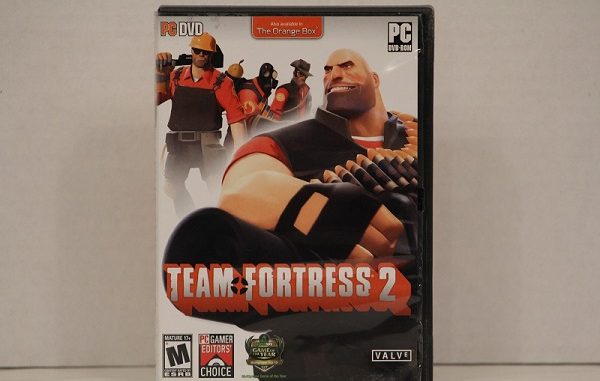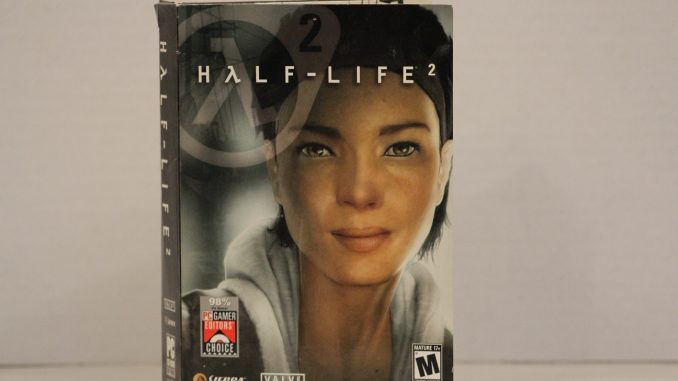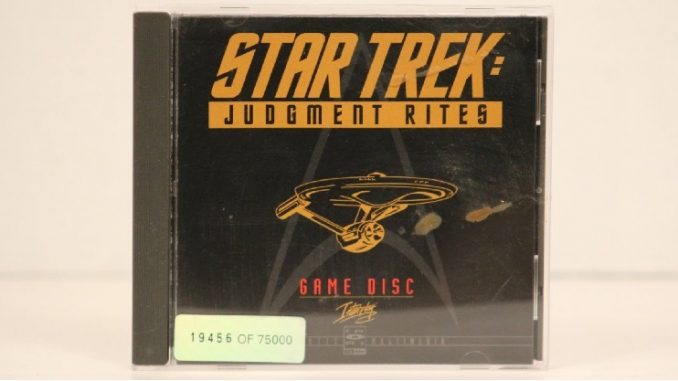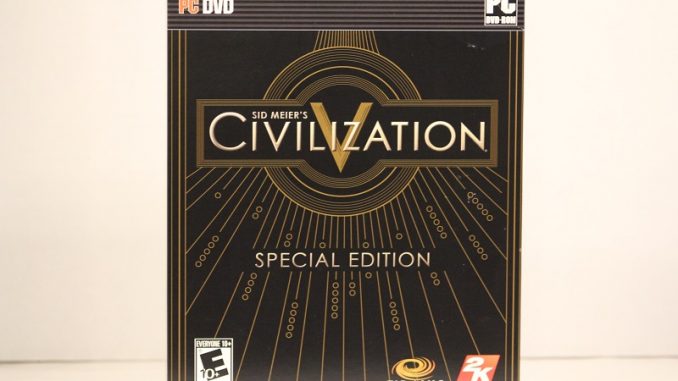
When it comes to the digital marketplace, Valve has been ahead of the curve since the company officially released Steam, a digital distribution platform, back in 2003. It was a way for Valve to combat piracy and streamline the patching and updating process for its IPs. Since then, Steam has become a tremendous success for the company and dominates the PC market. But it was a huge blow for consumers because PC games no longer held any resale or collectible value since the online-DRM was required for almost every single game. But in France, that could change according to a French Court ruling that Valve must allow consumers to resell their Steam digital copies and why that is a good thing.
Where Valve is concerned, there is a lot that I have to be grateful for. The company kept the PC games market afloat long enough for it to bounce back and become better than ever (in terms of sales, increased consumer base, and awareness). But despite what it has done, it is not a perfect company. While I recognized the need for Steam when it came to games such as Counter-Strike 1.6, which was flooded with cheaters, I was angry that Half-Life 2 required an online connection to make the physical copy playable.
Because of this, the PC physical market took a nosedive straight into obsolescence. Where once there were multiple aisles dedicated to selling PC games, it quickly devolved into a small section as the presence of console games grew. Especially since physical copies in the console market still retained some value and continued to grab more of the market space. Whether through GameStop, Ebay, Craigslist, and other sites, console gamers could still make some of their money back, or even profit, from selling physical copies.
But what about the PC gamers?

No longer could they try to get back some of the money they might have wasted on a game that had been bad, one they never bothered to play, or stopped playing altogether. There is no option to recoup monetary loss like console gamers can. Though that option for the console gamer is dying away too.
The used game market, like any used market, is an important part of the industry. It allows consumers a return on investment and lets those who can’t afford to buy games on release day, because of monetary issues, the chance to still play newer games by buying them cheaper on the used market. It also increases awareness of a product, more specifically a franchise, that consumers could be persuaded to buy on release day and reduce the risk of wasting their hard-earned money.
This is especially good for kids in middle-school and high school who save up their allowance or what they make from mowing lawns in order to keep buying new games. After all, how many of you older gamers used to go to GameStop, or a mom and pop store, to sell back your game in order to be able to purchase a new one?
Despite its egregious practices, GameStop allowed a significant amount of gamers to keep being gamers because of the used market space. Sure, Valve’s now-infamous Steam sales are the stuff of memes and great for the consumer. Yet, not all games go on sale, or there are some companies that never put titles up for sale for a long time to the point that when purchased, the consumer has missed the mark of when the game was a watercooler topic.
Being able to sell our digital copies offers the consumer a ROI and the chance to still be a part of the conversation when a new game is all anyone can talk about.
But this court ruling doesn’t stop at just reselling a digital game copy. It also encapsulates digital goods as well.

Not only did Valve spearhead digital distribution but, here in the West, also digital goods with Steam trading cards and an assortment of ingame items. It started with Valve’s multiplayer shooter Team Fortress 2, which saw an immediate rise in trading and a digital market where such items were sold amongst gamers for currency (Steam Wallet). But the French court’s ruling not only would allow gamers to resell their digital Steam copies, but also sell digital goods such as trading cards, loot box items, etc.
The reality is that the digital goods market continues to rise and if consumers want to benefit from it, than such a shift in this space would be a welcome one. After all, the digital market has been taking advantage of consumers by not allowing them to trade or resell items that they are encouraged to spend real-world currency on (a growing trend).
Take a look at collectible card games. You can buy physical packs of cards and be able to trade, sell, or buy in order to acquire specific cards you might want for a certain deck build. But games such as Hearthstone, Magic the Gathering, and others don’t allow that when it comes to their digital packs. Rather than being able to trade, buy, or sell to try and get the cards you need for a good deck, you have to keep buying more digital packs in the hopes of getting what you need. Or, in some IPs, you can break down cards for resources to construct certain cards. Yet no matter how you look at it, shifting from physical to digital was a huge drawback for consumers, but a major windfall for developers.
Of course, in regards to the reselling of digital ingame items, Valve already allows it on the Steam Marketplace where the company gets a percentage of the sales. Even the developers get a percentage of sales in the used marketplace.
This practice of Valve and developers taking a percentage from used digital good sales could be applied to the reselling of used games. A better proposition for developers considering that, when it comes to the reselling of physical copies, they never see a dime as a result. But in order for this to happen, Valve would have to come up with a system to accommodate the reselling of digital copies which could lead to better customer service, a better delivery system, and possibly a new way to sell used games. Suffice to say, Valve and other digital distributors would have to step up their games.

Looking at the potential benefits of reselling digital copies, there will be those who will argue that this will hurt developers. A tired argument that has proven false considering that the used game market has pretty much gone hand-in-hand with the games industry for a long time. Otherwise, stores such as GameStop would not have existed for so long and a lot more developers would have failed over the years as a result. However, I would argue that it is usually the failure of the developers to produce a good-enough product to entice consumers to purchase their game new rather than used which would lead to their demise.
Having said that, there are those that, no matter what, will always be looking for deals or a cheaper price which might mean that the reselling of used digital games could become a boon to the developer rather than a loss like in the physical marketplace. Even when a new game has been released, there are people who are also looking for a used copy at the same time. Which is why stores offer incentives for new buyers to sell back their now-used copy as quickly as possible.
So how does this benefit the developer?
The obvious thing would be that, as mentioned earlier, developers would get a percentage of the used digital sale. But it could be that the developers would make even more money during the release cycle of their product because more used copies would be sold in conjunction with new sales resulting in faster turnaround through a digital marketplace than the physical one.
Better to make some money off of a digital sale than nothing from a physical one, right?
Other incentives for consumers, that would benefit the developer, would be the incentive to sell their digital goods alongside their copy. Perhaps bundle it all in a way to make the sale more lucrative for them and, in turn, would mean that more money goes to the developer as a result. This would probably result in further distribution of DLC from those that normally wouldn’t have bothered picking it up in the first place.
Of course, this is just theorizing and speculation. But looking at the success and behavior of the physical used game market, it is hard not to draw such conclusions.

However, the biggest thing that this court ruling has done is that it establishes consumer ownership of their digital game copies. Ever since Valve released Steam, and always-on DRM became the industry standard, it meant that consumers no longer had any rights to the games they purchased. They no longer owned the items they spent their money on. A fact that I have spoken out against over and over again.
As the digital marketplace continues to grow, ownership needs to be established. Purchasing a digital item should not mean you have no right to own it because of a lack of physicality. You bought it, you own it. That is how it has always been and should be for the digital marketplace.
And because consumers would now own these digital goods, the protection and security of their accounts would be imperative to Valve, Ubisoft, Electronic Arts, Blizzard, and every other digital distributor. It means that law enforcement or the government could intervene. Companies would have to up their security and ability of finding the hackers and criminals who are stealing accounts and reselling them. After all, if someone hacked my account and was able to sell my 600+ game library, in addition to the thousands of digital items I own, it would be counted as grand larceny, according to the law.
Think of the legal repercussions of that.
By owning digital copies, publishers would no longer be able to remove a video game title from your digital library (it has happened). Because that would be considered theft of your personal property now.

Of course, this entire editorial is based on what is happening in the French courts. But will this ruling affect only French consumers? Maybe. However, given how the European Union works, it could affect all those countries that are part of it (though I am not an expert regarding the EU). Could it happen here in the United States? I hope so. And it might, considering that Valve started offering Steam refunds because of a lawsuit filed in Australia back in 2014.
Suffice to say, this is a good thing for consumers and it is, in my opinion, the next step in the era of the digital marketplace.
Is this good for big and indie developers? That will have to be another discussion. But I have no doubt, if this becomes the norm for the video game industry, that there could be a great big shakeup on how games are developed from that point on.
But what do you think about being able to resell your digital games and items? Sound off in the comments section below!
Author’s Note: For those who would like to support my work, you can donate via PayPal




Bring on the digital reselling and not just for Steam (and potentially other PC storefronts) but the console space as well.
Hell yeah!
[…] on the lookout for our follow-up editorial on whether this is a good or bad thing for […]
[…] Check out our editorial about why reselling digital copies is a good thing. […]